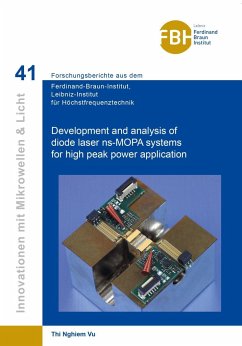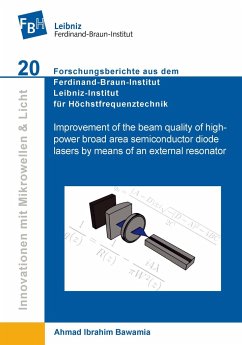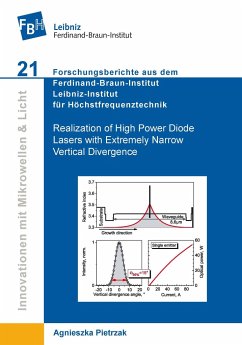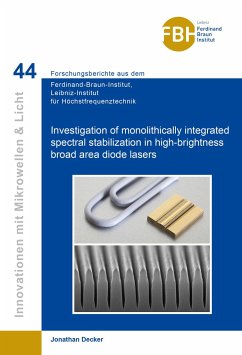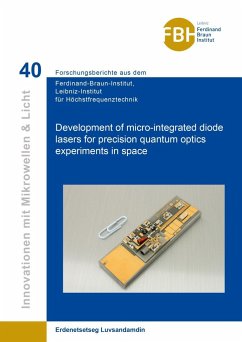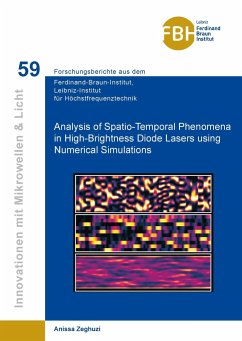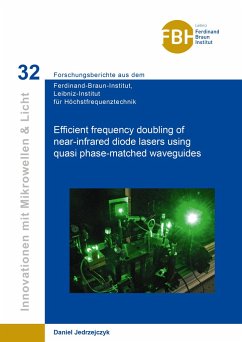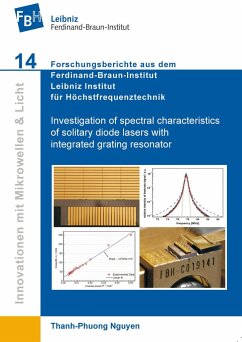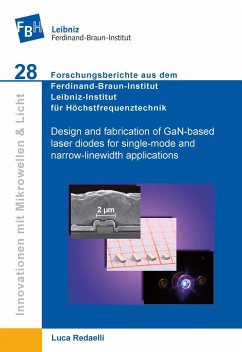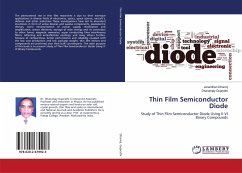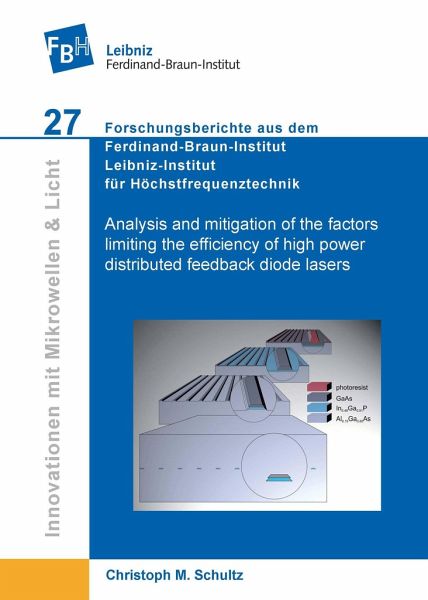
Analysis and mitigation of the factors limiting the efficiency of high power distributed feedback diode lasers (Band 27)

PAYBACK Punkte
0 °P sammeln!
High-power, high-efficiency, wavelength-stabilized broad area (BA) diode lasers are promising devices for industrial applications. They can be used, for example, for pumping narrow absorption bands in gain media of solid-state and fiber lasers as well as for power scaling by means of dense spectral beam combining. This thesis focuses on the analysis and mitigation of the factors limiting the efficiency of high-power distributed feedback (DFB) diode lasers. In particular, it will be shown how a power conversion efficiency in the 60 %-range can be achieved from 10 W-class 100 ¿m stripe DFB-BA l...
High-power, high-efficiency, wavelength-stabilized broad area (BA) diode lasers are promising devices for industrial applications. They can be used, for example, for pumping narrow absorption bands in gain media of solid-state and fiber lasers as well as for power scaling by means of dense spectral beam combining. This thesis focuses on the analysis and mitigation of the factors limiting the efficiency of high-power distributed feedback (DFB) diode lasers. In particular, it will be shown how a power conversion efficiency in the 60 %-range can be achieved from 10 W-class 100 ¿m stripe DFB-BA lasers - values close to those of state-of-the-art Fabry-Pérot (FP) BA lasers. For the first time world-wide, newly developed DFB-BA lasers achieve 12 W continuous mode optical output power with 62 % peak power conversion efficiency and 58 % at 10 W, respectively. Wavelength stabilization is demonstrated from threshold to 15 A with a spectral width below 0.8 nm containing 95 % of the emitted power. The factors limiting the efficiency of DFB-BA lasers compared to state-of-the-art 10 W-class FP-BA lasers have been identified and as a result largely eliminated.




